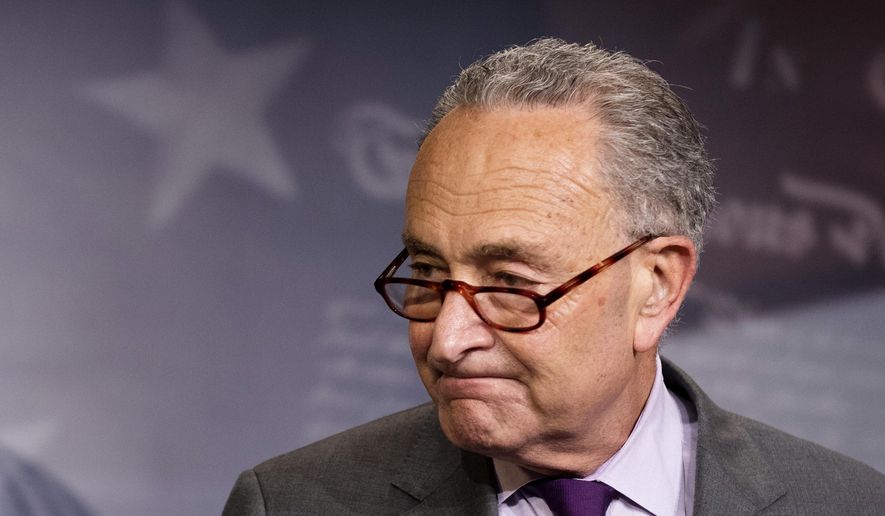Senate Democrats released a proposal Thursday to invest $350 billion in communities of color that have been hit hard by the coronavirus, as Congress looks to pass another relief package by the end of the month.
Led by Senate Minority Leader Charles E. Schumer, the proposal — dubbed the Economic Justice Act — is an attempt by Democrats to bolster their priorities before a Republican plan moves through the Senate.
“Long before the pandemic, long before this recession, long before this year’s protests, structural inequalities have persisted in health care and housing, the economy and education,” the New York Democrat said in a statement. “COVID-19 has only magnified these injustices and we must confront them with lasting, meaningful solutions that tear down economic and social barriers, and reinvest in historically underserved communities.”
In a summary of the plan, Democrats said it would be in addition to the $3 trillion package passed by the House in May and would help those who “bear a disproportionately severe burden” in the pandemic.
According to the Centers for Disease Control and Prevention, “long-standing systemic health and social inequities have put some members of racial and ethnic minority groups at increased risk of getting COVID-19 or experiencing severe illness, regardless of age.”
House Speaker Nancy Pelosi defended the Democrats’ approach to combat the coronavirus with expensive packages, arguing it’s better to invest now with low interest rates than to allow the pandemic to stretch on.
“When they say it’s too expensive, how can they say such a thing? When right now the Fed is just propping up the stock market? The stock market looks good, huh? Well, federal dollars are helping to make that happen,” the California Democrat said. “And that’s a good thing for the economy. But we should have trillions of dollars to prop up workers. We’ve never seen anything like this.
“The point is, if we don’t invest the money now, it will be much worse. … So this is about [the] survival of our economy. And it is about spending the money in a way that brings us back,” she said.
Congress has spent nearly $3 trillion in the past four coronavirus packages.
The White House is eyeing $1 trillion for the fifth package.
The Democrats’ plan would invest $115 billion in infrastructure projects for internet access, low-income housing, environmental initiatives and public schools. It also would provide about $70 billion for tax credits for homeowners and renters struggling to pay their bills.
It would allocate another $70 billion for Medicaid expansion — including maternal mortality concerns — and community health care centers, as well as $95 billion for child care, job training, at-risk youth programs and support for small businesses.
The proposal would be partially funded by reallocating $200 billion in unused funds from the CARES Act enacted in April.
The Federal Reserve and the Treasury Department have made only $6.7 billion in purchases and loans through its emergency lending facilities set up to try to ease the economic pain caused by coronavirus shutdowns, out of $454 billion allocated, according to a report last month by the commission tasked with overseeing the funds.
The report also said the Treasury had not yet disbursed any of the $46 billion intended to provide loans and loan guarantees to specific industries such as airlines.
Meanwhile, Senate Majority Leader Mitch McConnell, Kentucky Republican, is working on a coronavirus package that he hopes will pass the chamber in the next three weeks.
Party leaders haven’t begun to negotiate a deal on the next package, but Republicans have laid out liability protections for health care providers and small businesses as one of their “red lines.”
There’s bipartisan agreement that unemployment benefits, direct payments to the public, as well as child care and schools should be included, though the size and scope of those elements are expected to be a sticking point.
• David Sherfinski contributed to this report.
• Gabriella Muñoz can be reached at gmunoz@washingtontimes.com.




Please read our comment policy before commenting.